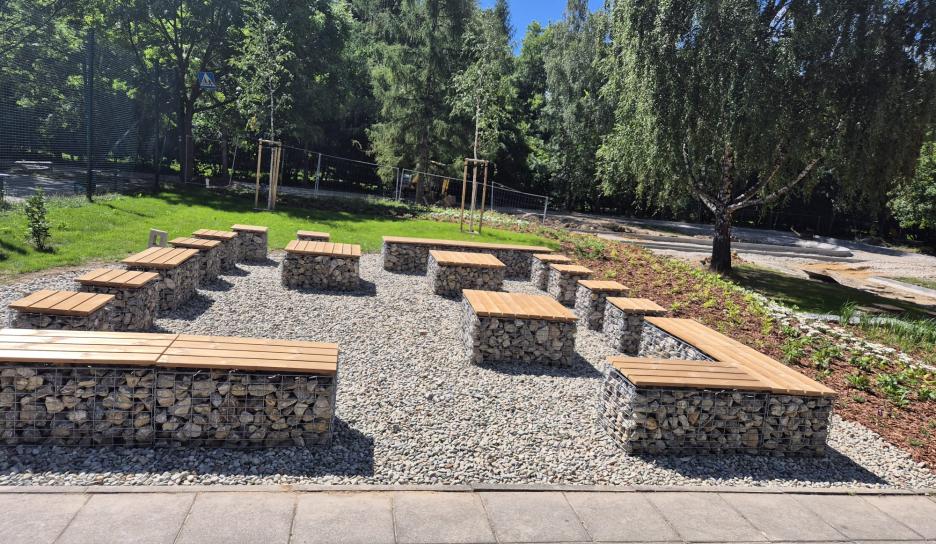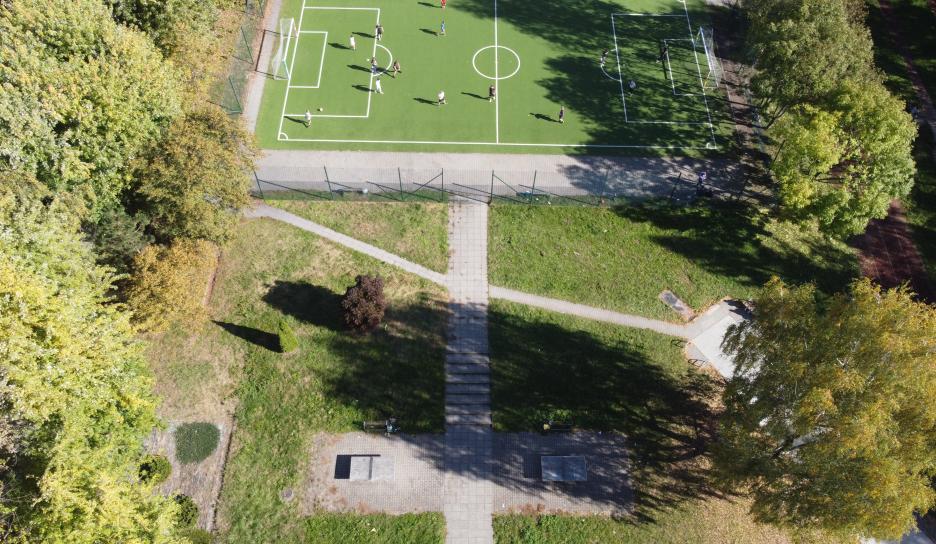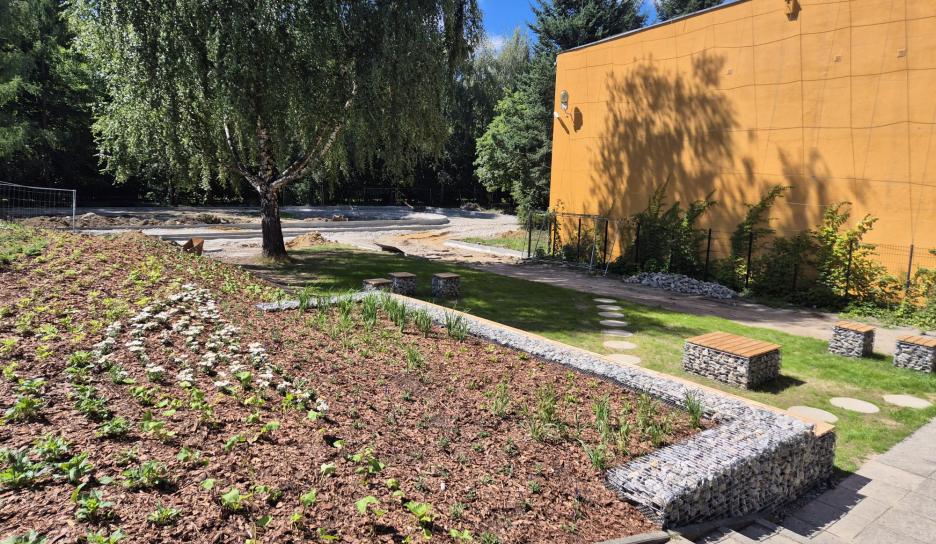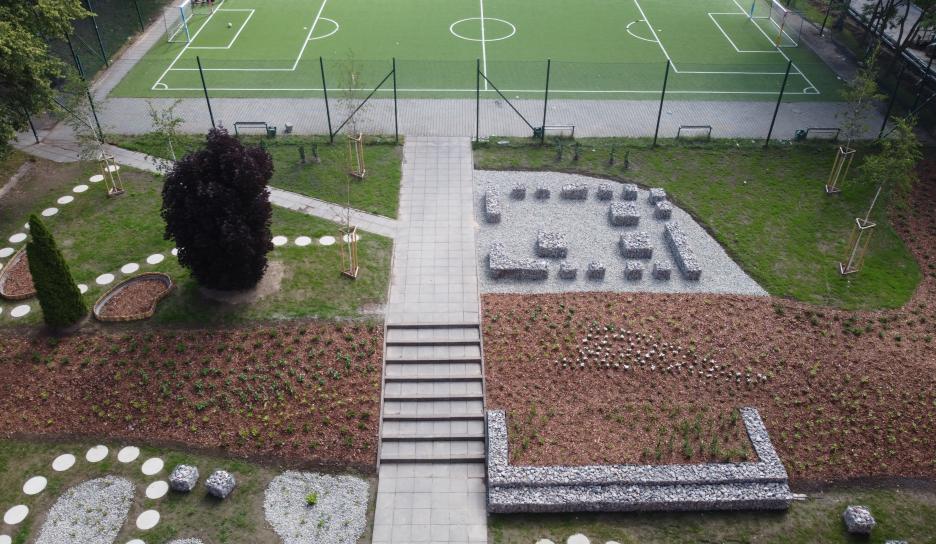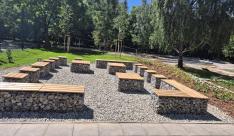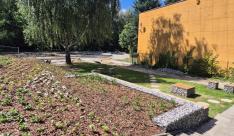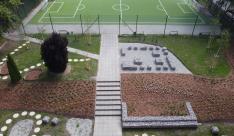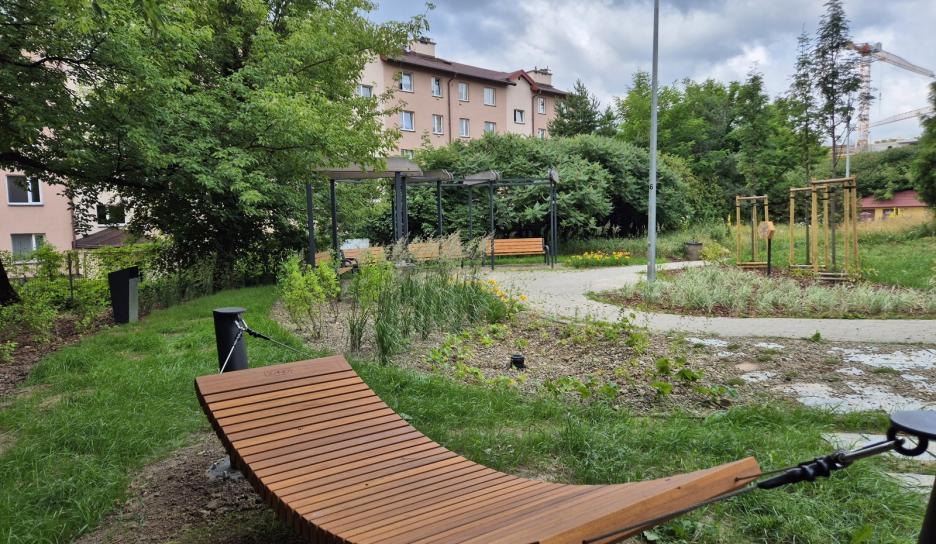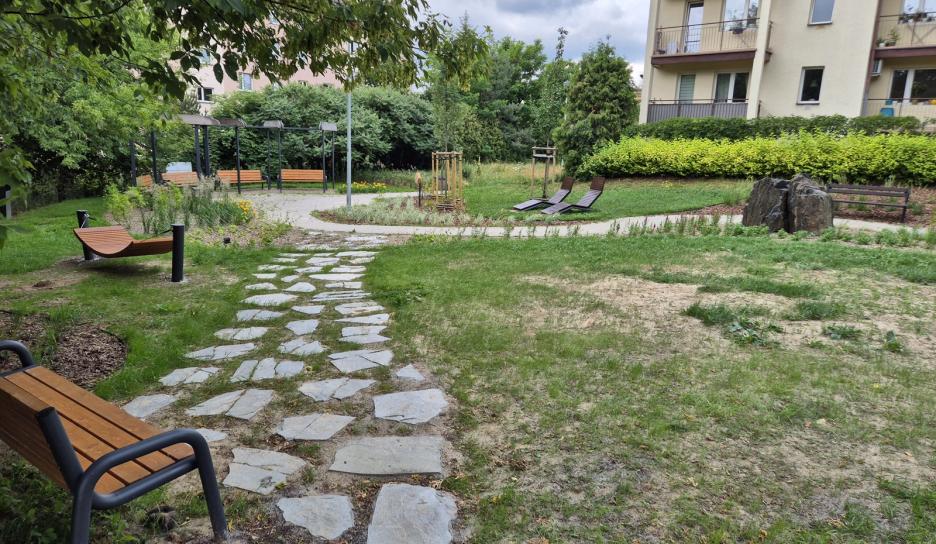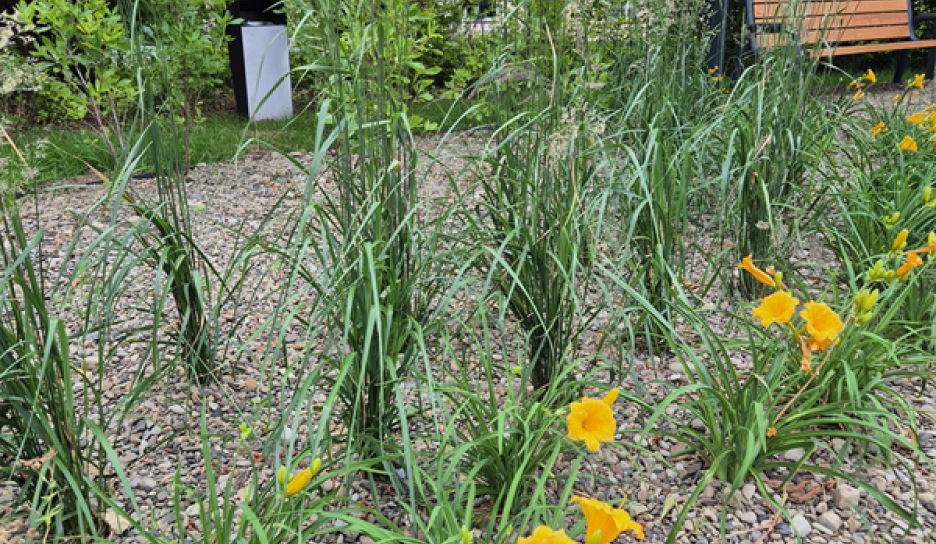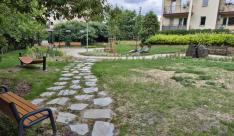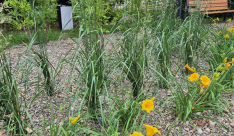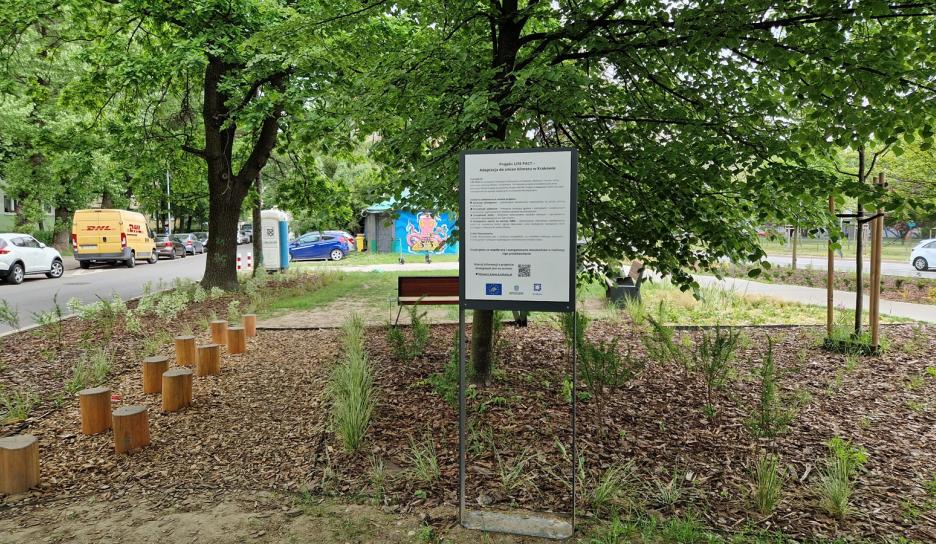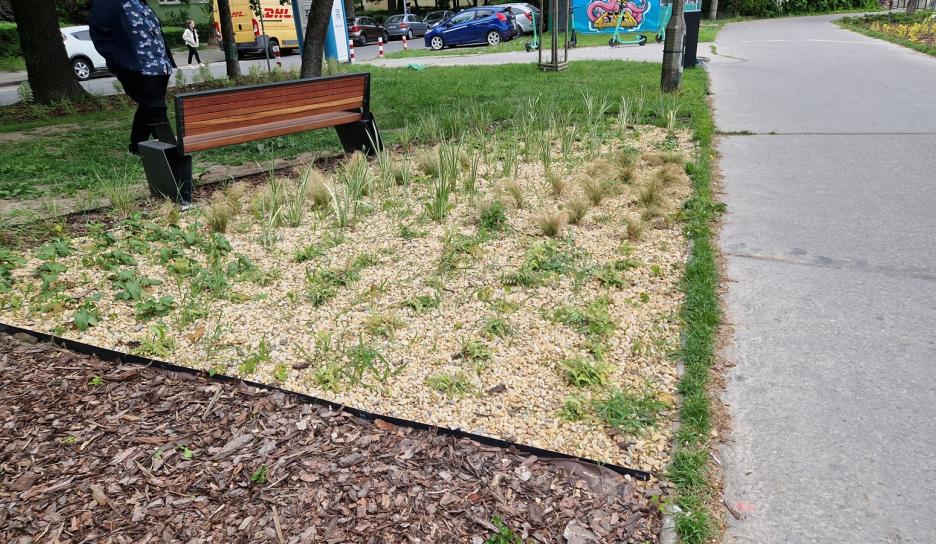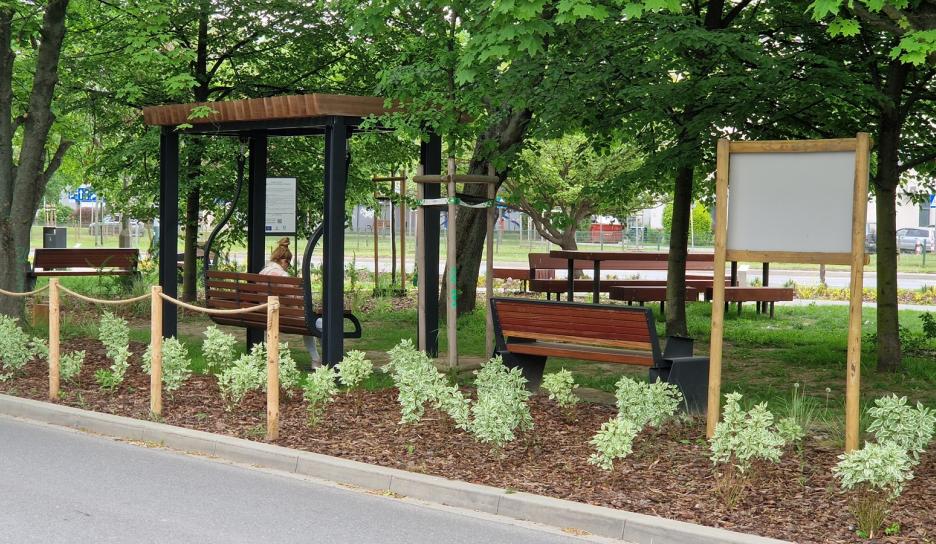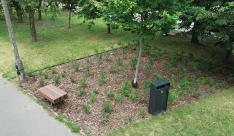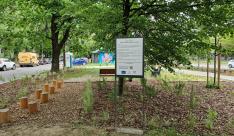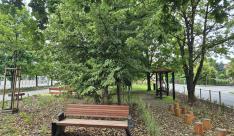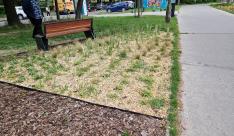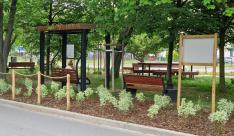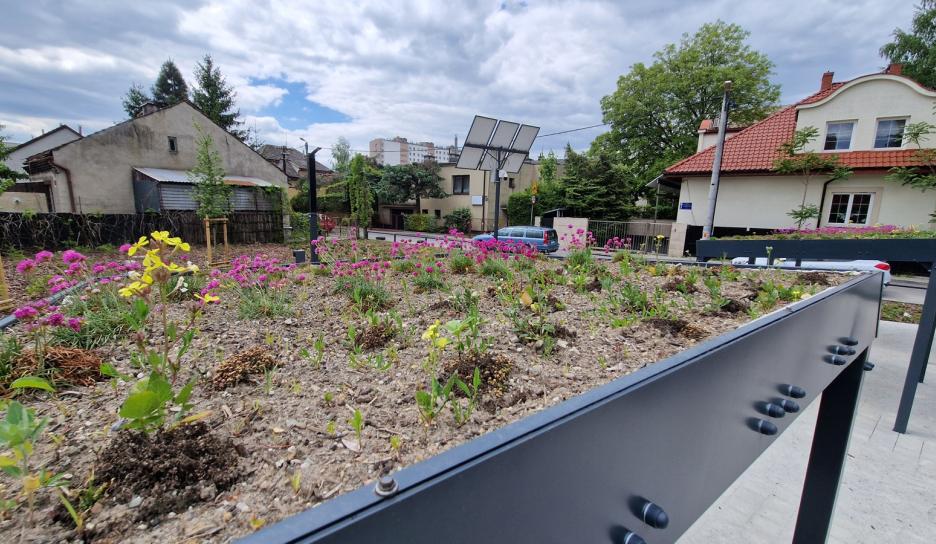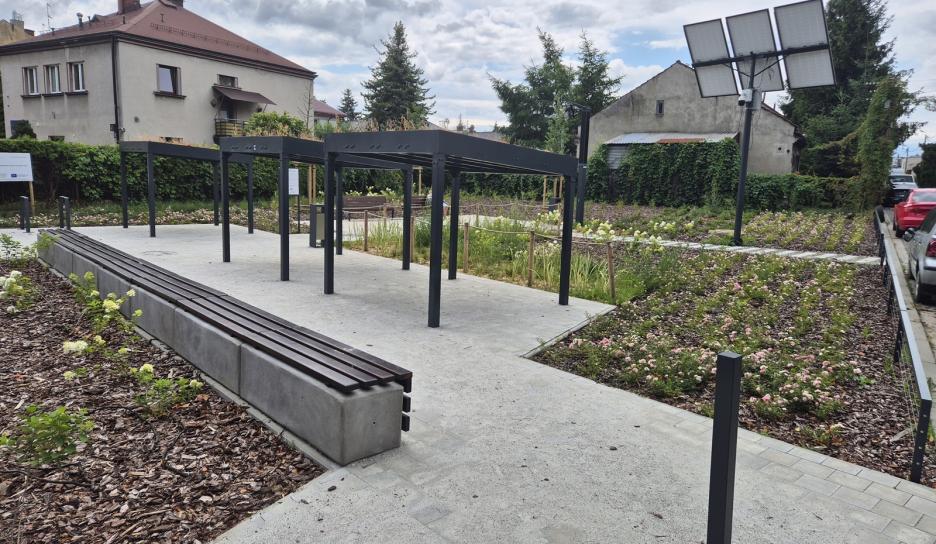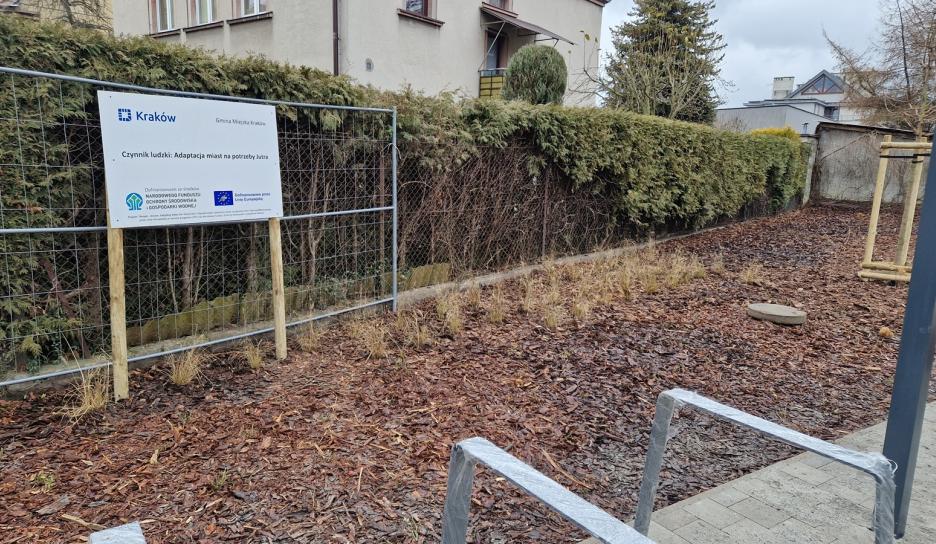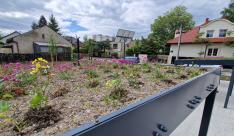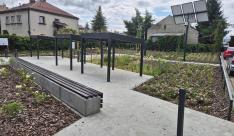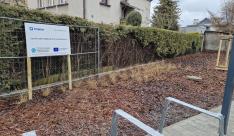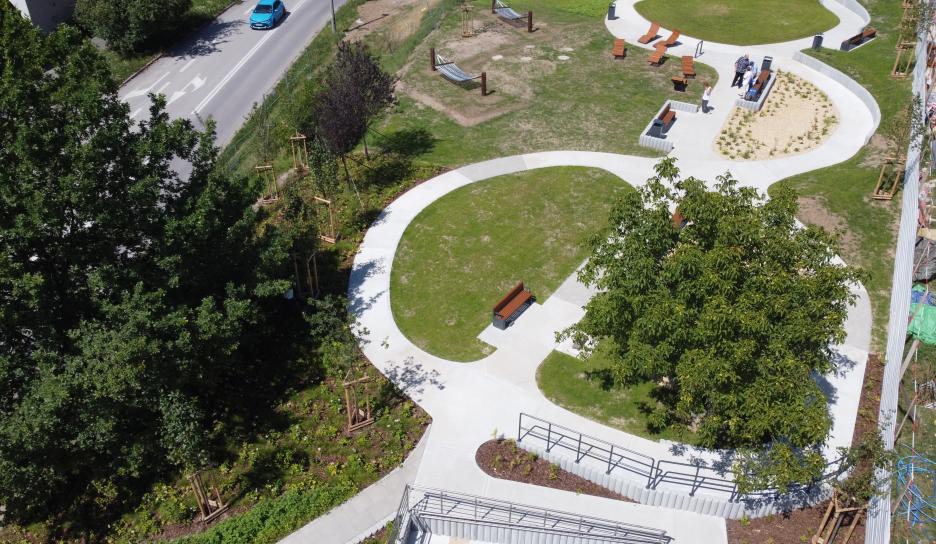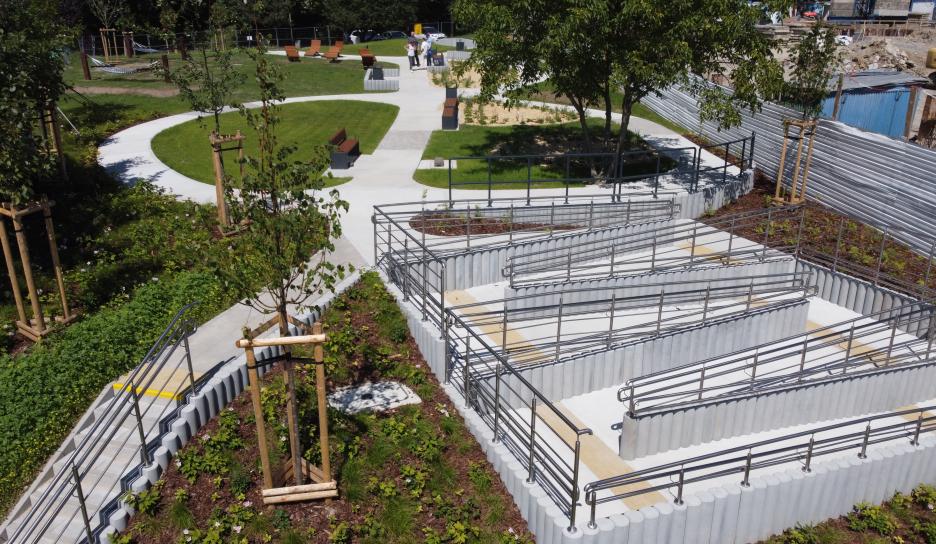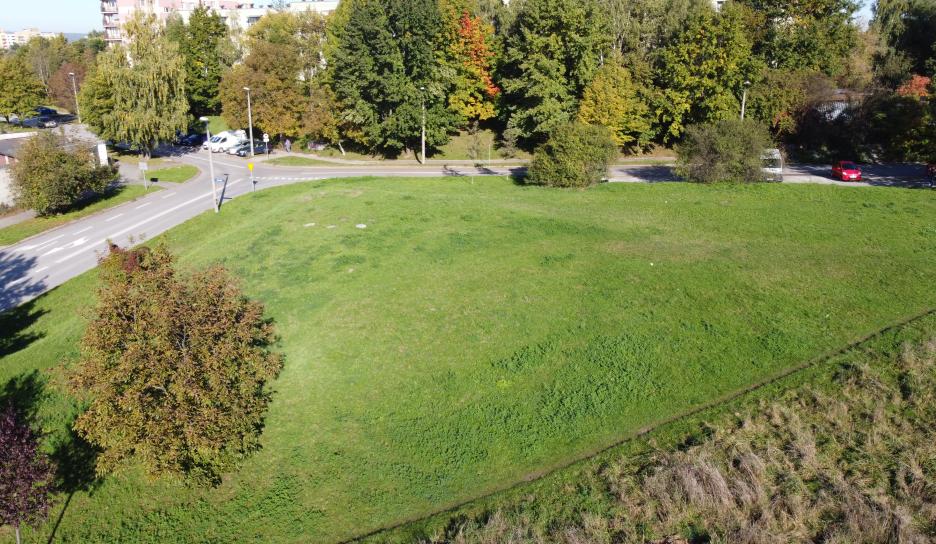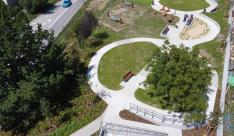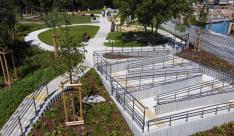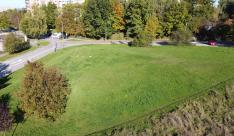Kraków, partner LIFE PACT
Locations in Kraków
Strzelcow
What have we done?
Rain gardens in the form of depressions – slowing water runoff,
purification, and gradual release into the ground. Use of plants and
hiding places for insects to increase biodiversity. Replacing
hardened, impermeable surfaces with surfaces that allow water
infiltration. Planting greenery to increase infiltration and improve
the local microclimate.
Banacha
What have we done?
At the Banacha location in Krakow, a comprehensive naturebased stormwater management system was implemented through the construction of a specialized rain garden. This facility features a strategically designed basin that captures and infiltrates runoff from hardened surfaces and vegetated areas. The basin bottom was partially sealed to prevent soil plasticization and control overflow beyond its perimeter.
Monte Cassino
What have we done?
The LIFE-PACT project implemented a comprehensive bluegreen climate adaptation solution on Monte Cassino Street in Krakow. The investment comprises three functional zones: a green wall serving as an acoustic barrier, a recreation zone with benches and recreational infrastructure, and a rain garden collecting stormwater.
Chelmonskiego
What have we done?
On the site of the former market square, covered with concrete pavement at the intersection of Chełmońskiego and Ehrenberga Streets, a number of NbS were implemented to increase the city's resilience to the effects of climate change. The project harmoniously combined the former character of the place with adaptation measures. As a result of a joint decision by the residents of the Prądnik Biały district, designers and city representatives, the area was divided into three main zones.
Witosa
What have we done?
Between Witosa, Gołaśka, and Marcowa Streets, multiple solutions were implemented to support climate change adaptation and improve residents' quality of life. A public space was created featuring new alleys, small architectural elements, recreation area, pram ramp, rain gardens, and greenery that enhance the living environment. Rain gardens, designed as depressions, effectively capture rainwater from surrounding surfaces, retaining and gradually releasing it into the ground. They provide effective flood protection and contribute to improving the local microclimate.
More information
Visit the website of Kraków.


